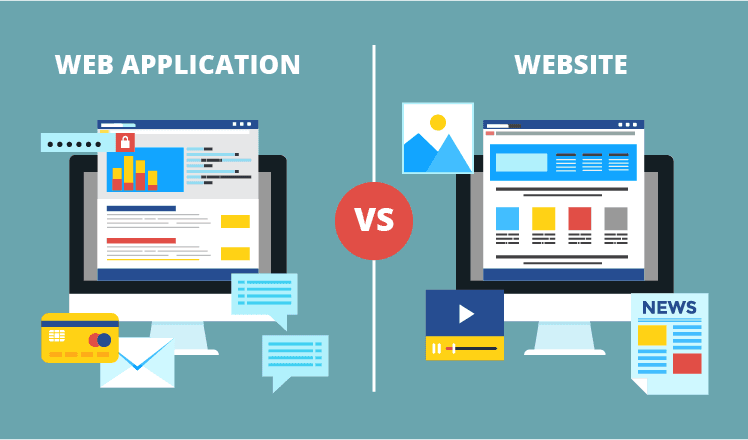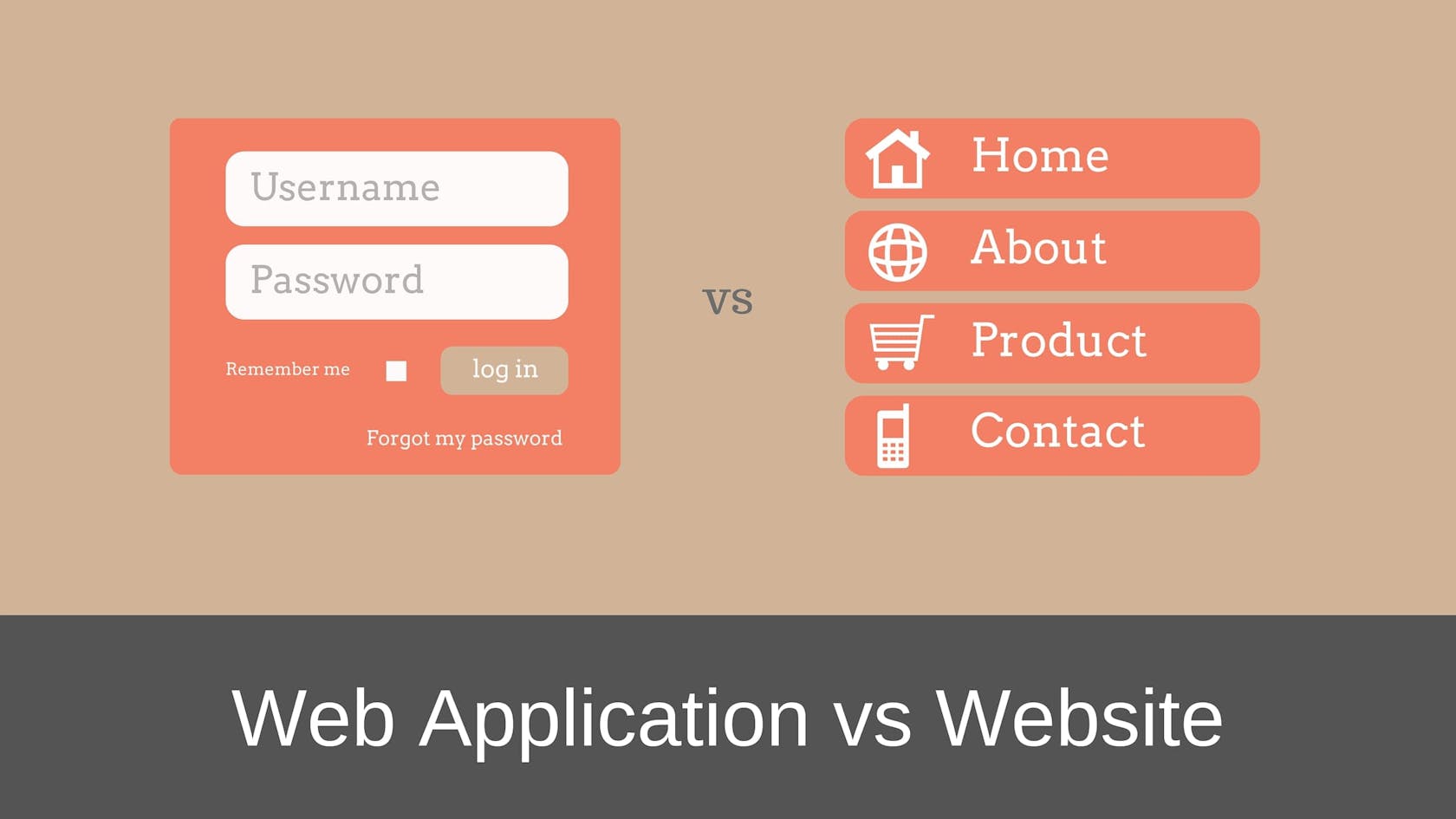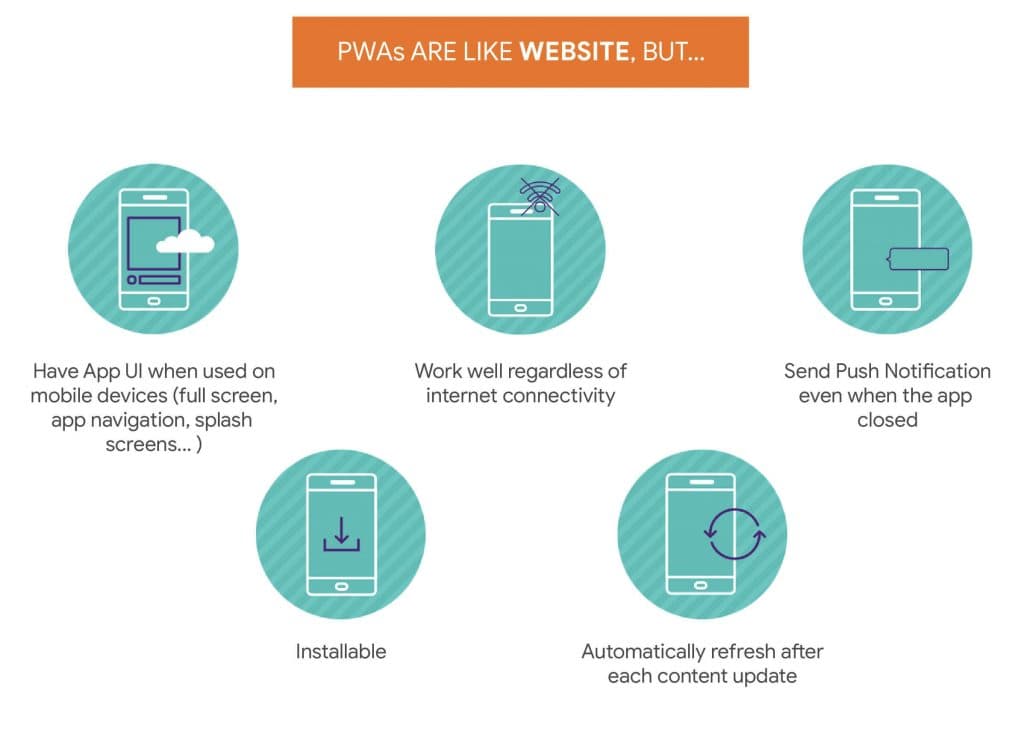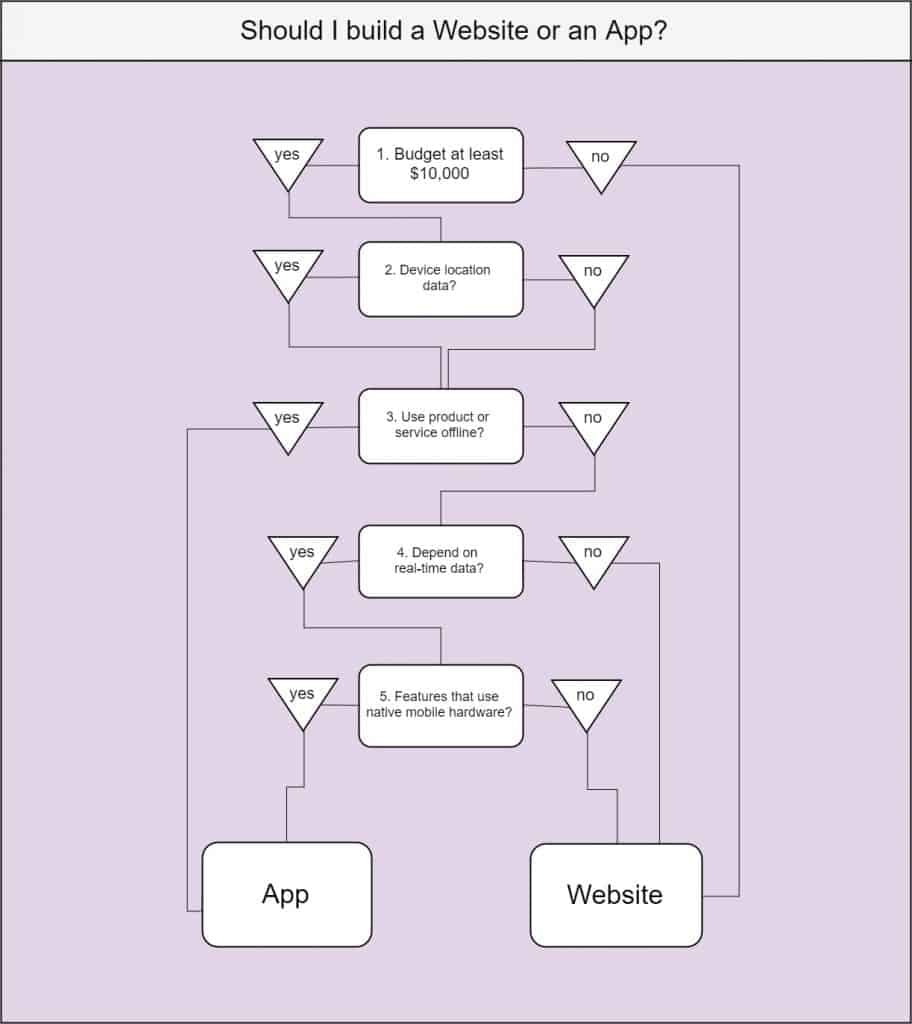Web App vs Website: Key Distinctions
When you need to figure out the difference between a web app and a website in order to decide which one is most suitable for your business, you might get confused. The issue is that both definitions sound similar, so, lacking some technical knowledge, you will have trouble differentiating between the two.

This article will help to explain the differences between a website and a web app, so you no longer need to spend hours surfing the Internet to get your question answered. If you are ready to absorb the information, we can get started!
How to Differentiate Between a Website and a Web App?
The difference between a website and a web application is usually a matter of perspective and semantics. They both have front-end and back-end code, usually even written in the same programming language.
Sometimes the end-user might not know the distinctions and you, as a business owner, have to clearly understand them prior to choosing a specific solution. So, to recognize the difference between these two almost identical concepts, we will consider them in detail, starting with the definitions of their key features.
Defining a Website?
According to Wikipedia:
“A website or web site is a collection of related network web resources, such as web pages, multimedia content, which are typically identified with a common domain name, and published on at least one web server”.
When trying to define the website features, we should highlight the following:
- The key goal is to provide information. Blogs, news and government portals, online encyclopedias, such as Martha Stewart, Wikipedia, CNN, USAP, the Onion, and New York Post send data to the users.
- Lack of interactivity or personalized experience. Sometimes, there is a possibility to sign up for a newsletter subscription by adding the email address and a form for submission. However, in general, most websites don’t require users to sign up, but they do ask their users to subscribe to their newsletters.
- Content defines a website. High-quality content is used to send the details about the website and communicate its objective to the search engines. As far as the latter understands the website’s purpose, they know when and whom to show your website in the search results. Because the website can’t boast interactivity, the content is mostly static.
- Ease of maintenance. Establishing the website involves less time and effort compared to a web app. You do not need great coding knowledge for using simple websites. Therefore, it is easier to find a developer with the required skills — a small web design agency might be a perfect choice.
- Cheaper to develop. As long as the maintenance is easy, the creation of a website should not cost an arm and a leg.
Defining a Web App?
Referring back to Wikipedia:
“In computing, a web application or web app is a client-server computer program which the client (including the user interface and client-side logic) runs is a web browser”.
Compared to a website, a web application includes the following features:
- Interactive, dynamic and ever-changing. Online stores, book catalogs, online banking, and other web apps such as Airbnb, Chase, Trello, Nxtbook Media provide a dialog between the users and business, and allow you to interact with data, make electronic payments or use live chats.
- Interaction with the user and data entry define a web application. A web application still conveys information, but also encourages the users to start acting. Let’s take a banking app as an example: once the client enters the data, the payment is processed. Or another example concerning online stores: the visitors browse the catalog and purchase a product or service with just a few clicks. The concept is rather clear, isn’t it?
- A senior-level of programming expertise is required. A web app is more complicated in terms of implementation, therefore, it requires developers with a wide range of skills and abilities. Besides, web apps often require integrations with external technologies like CRM, ERP, and others. Establishing a more complex system adds to the final cost as well.
- More expensive to create. Since the developers of web apps have greater skills than specialists who build websites, their rates are much higher.
After diving deep into the main functions of the website and web app, it is obvious that there is not much in common between them. Therefore, it is not correct to use the same term for both a website and a web app.

When choosing between building website versus web application, a company that plans to launch a startup should define its purpose, the expected results, and impact the startup should have on its clients. Even if your current goal is to start an informative resource to introduce your brand, its history, and the team behind the project, don’t jump to conclusions. It is much better to analyze which one is better for you if you intend to scale up in the future.
If you recognize the difference yourself, you may want to acquire the services of a professional, highly-experienced technical partner to get advice on your concerns about building your next project. For more information, feel free to book an appointment at Gearheart.
Besides, there are few more criteria that may help you decide whether you need a web app or a website. Let’s move on to the next paragraph to look at them.
Website vs Web App: Which One is Better for You?
Now that you know the main characteristics of both concepts, it will be easier to select a website or a web application for your business. By running through the steps below, you will understand which functions you need to be sure you are making the right decision.
- If you plan to launch a blog, news portal, or any other data platform, a website is a perfect option. Here’s where you have to decide if you plan to launch an informational resource without further scale and with minimum user interaction.
- If you run a business that offers various goods or services, you may want to create an online store as an additional marketing channel. If it requires advanced services such as product pages, a shopping cart, processing web payments, a product catalog, and other specific features, a web application would work best for you.
- If you intend to boost the interactivity and personalized experience on your website, apart from the inclusion of CRM, ERP, and social networks, you would benefit more from using a web application.
- A website can also be an additional distribution channel for your project. If you are running a business offline (e.g. brick-and-mortar stores, logistics, jewelry, real estate, bookstores, cafes, and others) but want to show your services, prices, and blog posts on a digital platform, choose a website to gain new customers.
- If you want to ensure that your users can maintain access to your web app even when they’re offline, we recommend checking out PWA: progressive web applications. This is a type of mobile application that operates through the web and supports caching and background-sync. Due to the latter, the application is always available online and offline, meaning it becomes more convenient for users.

6. If your web project might need updates on a regular basis — a website is the better choice. The reason is that any small changes applied to a website don’t require the whole project to be recompiled from the very beginning, unlike web apps. All you have to do for the changes to be effective is just update the HTML code.
If you’ve not recently been sure what option to end on, this should help you be more confident in making a final decision.
Moreover, when facing the question “What to choose: web application vs website?”, consider your major objective, products, services, or ideas you offer, target audience, ability to ensure the safety of the personal user data of your clients, and, of course, the budget among many other factors.

Wrapping Up
Now that you have got an idea on the distinction of the website vs web application, it should be easier to figure out the needs of your business and what option would fit them best.
While a website gives the necessary data on your brand, services or goods you are offering, educating the clients this way, a web application enables advanced functionality and interactions between the user and your web platform. While a website ensures hassle-free development and updates, a web application may require developers with advanced knowledge to implement an extended set of functions and integrations with external systems.
As soon as you set the major goal for your business, you will know if a website or a web app is more useful. Make sure to pick a professional web design agency with the relevant experience, a proven track record of successful projects, and a tight-knit team. The choice in favor of competent specialists is one more step to success. Gearheart is one of the companies that can help you.



